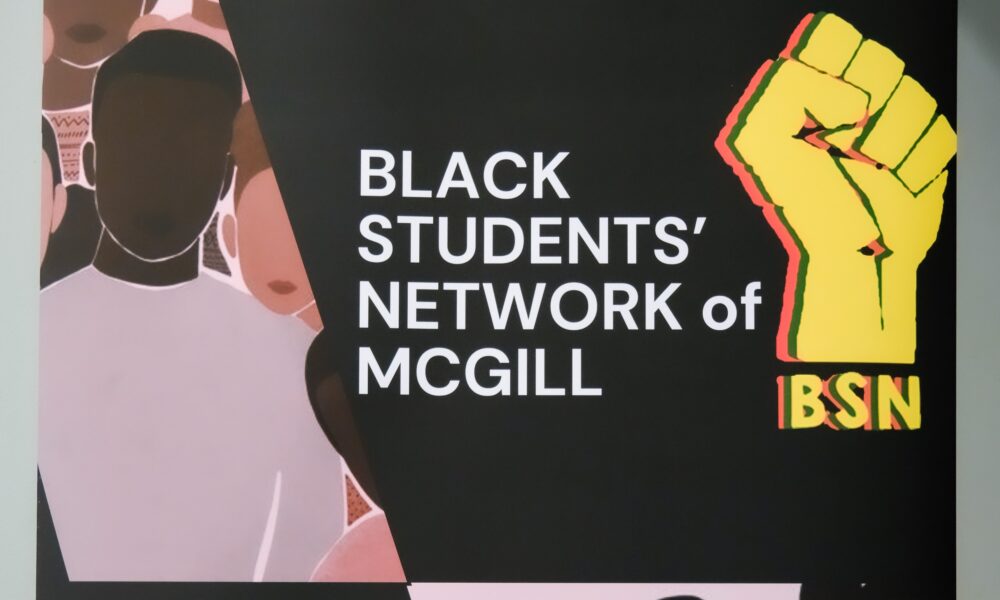In light of Black History Month, The Tribune spoke with Black students at McGill about their experiences and perspectives on the university’s efforts to foster inclusivity.
The role of Black student organizations
Across both international and local perspectives, students emphasized how Black student-led organizations were key to their sense of belonging by offering professional support and safe spaces.
“Clubs like [Black Student Network] BSN and [McGill African Students’ Society] MASS provide a great support system, and clubs like [McGill Social Business Network] MSBN do their best at making sure Black people are also exposed to opportunities that may help them professionally,” Hakim Mokwena, U2 Desautels, shared.
Noemi Milca Nouala, U2 Arts, credited these organizations with easing her transition to McGill as an international student adapting to Montreal’s culture, weather, and lifestyle.
“It is not unusual for me to be the only Black person in the room,” she said. “Being able to have this sense of community and not feel alone or like the odd one out is good. All the friends that I consider close to me, I met them at MASS or BSN during my first week at McGill. ”
Similarly, Emma-Sheryl Nana, U2 Science, told the The Tribune: “I do think I have been able to build a sense of community throughout my time at McGill, but not because of the initiative McGill takes, but because of people like Antoine [-Samuel Mauffette Alavo, McGill’s Black Student Affairs Liaison], and MASS doing many things where we get to meet our people and build a sense of community.”
Student social life
When asked about their social integration at McGill, student experiences varied, with international students, especially those who came from countries where they were not racial minorities, reporting more positive experiences.
“I have made friends and I haven’t really had any bad experiences,” shared Makhtar Andre Keny Ndoye, a U1 Science student.
Mokwena echoed similar sentiments: “Given that McGill is a historically white institution, it’s no secret that Black people are underrepresented in many of the faculties. However, with the multiple clubs it has catered to Black students, and Montreal being the diverse city it is, my experience has been mostly pleasant.”
Karen Nguewou, U2 Engineering, described McGill as a supportive environment.
“It’s been a good [experience] because I feel like we have a community and a lot of spaces for Black students as well as funding for diversity and anti-racism initiatives,” she said.
Nouala has also had a positive experience and made many friends given her involvement in numerous extracurriculars.
“I was able to find a sense of community [during my time here], and not only was I able to meet Black people but also international students,” she added.
Black History Month: Meaningful or performative?
While many students feel a sense of belonging at McGill, some were skeptical about the university’s role in committing to supporting Black students beyond its Black History Month initiatives.
“It feels very performative because it’s one month out of the year where we get bombarded and then there’s nothing else,” Nana shared. “[If it were not performative], our history and struggles would be advertised more during Black History Month but also be integrated more seamlessly. These stories should be highlighted every single day.”
Others acknowledged that, while some initiatives may feel performative, having events dedicated to Black students organized by student groups is better than having none at all, as those efforts seem meaningful.
“I can’t lie—where I’m from, there are absolutely no initiatives for black students,” Nguewou wrote. “Some [initiatives] are performative for sure but the ones organized by [Mauffette Alavo] seem more inclusive.”
The general consensus is that students overwhelmingly credit Black student organizations—not McGill—in creating a lasting community. McGill provides space, but students argue true inclusivity must extend beyond February. Many hope the university will offer lasting support and increase Black faculty representation to ensure real inclusion, every day.









